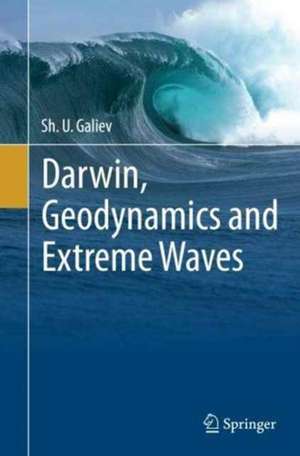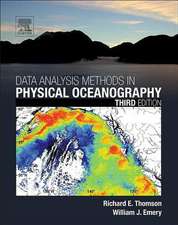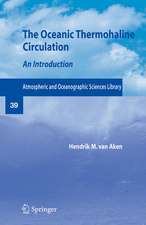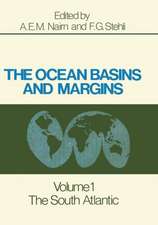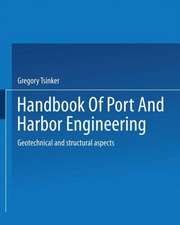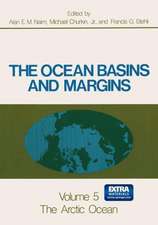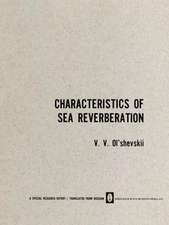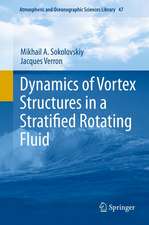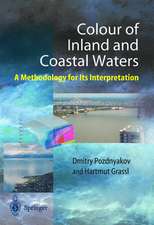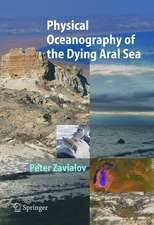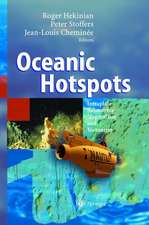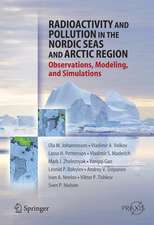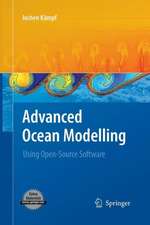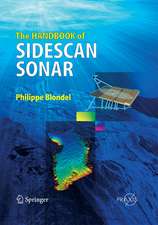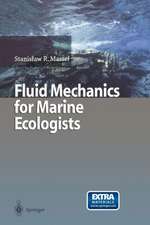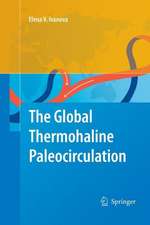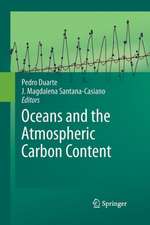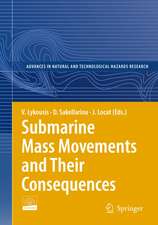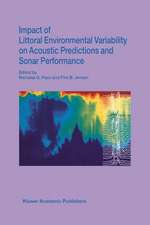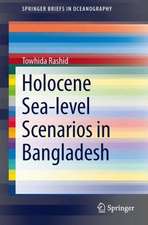Darwin, Geodynamics and Extreme Waves
Autor Sh. U. Galieven Limba Engleză Paperback – 19 oct 2016
In particular, the author details the observations that Darwin made on a powerful earthquake that occurred in Chile in 1835, noting how the famous naturalist and geologist used the concept of earthquake-induced vertical shock to explain the event's devastating impact. The book then goes on to show how Darwin's concept relates to the catastrophic results of the shallow quakes that recently destroyed Port-au-Prince (Haiti, 2010) and severely damaged Christchurch (New Zealand, 2011).
In addition, the author asks whether Darwin's ideas are endorsed by the discoveries of modern science and whether the results of destructive earthquakes can be modeled using strongly nonlinear wave equations. Coverage also proposes that similar equations can be used to simulate the dynamics of many objects on the surface of the Earth, and to model the origin of the Universe, dark matter, and dark energy as strongly nonlinear wave phenomena.
The book will appeal to students as well as researchers and engineers in geophysics, seismology, nonlinear wave studies, cosmology, physical oceanography, and ocean and coastal engineering. It will also be of use to those who are interested in the phenomena of natural catastrophes as well as those who want to learn more about the life and work of Charles Darwin.
| Toate formatele și edițiile | Preț | Express |
|---|---|---|
| Paperback (1) | 566.75 lei 38-44 zile | |
| Springer International Publishing – 19 oct 2016 | 566.75 lei 38-44 zile | |
| Hardback (1) | 650.19 lei 6-8 săpt. | |
| Springer International Publishing – 25 iun 2015 | 650.19 lei 6-8 săpt. |
Preț: 566.75 lei
Preț vechi: 708.44 lei
-20% Nou
Puncte Express: 850
Preț estimativ în valută:
108.44€ • 113.53$ • 89.73£
108.44€ • 113.53$ • 89.73£
Carte tipărită la comandă
Livrare economică 01-07 aprilie
Preluare comenzi: 021 569.72.76
Specificații
ISBN-13: 9783319363998
ISBN-10: 3319363999
Pagini: 365
Ilustrații: XIII, 352 p. 271 illus., 42 illus. in color.
Dimensiuni: 155 x 235 mm
Ediția:Softcover reprint of the original 1st ed. 2015
Editura: Springer International Publishing
Colecția Springer
Locul publicării:Cham, Switzerland
ISBN-10: 3319363999
Pagini: 365
Ilustrații: XIII, 352 p. 271 illus., 42 illus. in color.
Dimensiuni: 155 x 235 mm
Ediția:Softcover reprint of the original 1st ed. 2015
Editura: Springer International Publishing
Colecția Springer
Locul publicării:Cham, Switzerland
Cuprins
Preface.- Prologue: a few notes about Charles Darwin, his research and the contents of the book.- 1. Introduction.- 2. Extracts from Darwin’s publications, and his basic geophysical ideas.- 3. Darwin’s reports on catastrophic natural phenomena and modern science: topographic effect and local circumstances.- 4. Darwin’s reports on catastrophic natural phenomena and modern science: seaquake-induced waves, atomization and cavitation.- 5. Extreme wave/ship interaction.- 6. Modelling of extreme waves in natural resonators: from gravity waves to the origin of the Universe.- 7. Final comments on Charles Darwin's geophysical observations.
Textul de pe ultima copertă
This book examines the reasons behind the resonant amplification of seismic and ocean waves that have the capacity to destroy cities and ocean-going vessels. Using Charles Darwin’s important geophysical research as a starting point, it provides insights into the interaction between earthquakes with volcanoes, seaquake, and tsunami formation.
In particular, the author details the observations that Darwin made on a powerful earthquake that occurred in Chile in 1835, noting how the famous naturalist and geologist used the concept of earthquake-induced vertical shock to explain the event's devastating impact. The book then goes on to show how Darwin's concept relates to the catastrophic results of the shallow quakes that recently destroyed Port-au-Prince (Haiti, 2010) and severely damaged Christchurch (New Zealand, 2011).
In addition, the author asks whether Darwin's ideas are endorsed by the discoveries of modern science and whether the results of destructive earthquakes can be modeled using strongly nonlinear wave equations. Coverage also proposes that similar equations can be used to simulate the dynamics of many objects on the surface of the Earth, and to model the origin of the Universe, dark matter, and dark energy as strongly nonlinear wave phenomena.
The book will appeal to students as well as researchers and engineers in geophysics, seismology, nonlinear wave studies, cosmology, physical oceanography, and ocean and coastal engineering. It will also be of use to those who are interested in the phenomena of natural catastrophes as well as those who want to learn more about the life and work of Charles Darwin.
In particular, the author details the observations that Darwin made on a powerful earthquake that occurred in Chile in 1835, noting how the famous naturalist and geologist used the concept of earthquake-induced vertical shock to explain the event's devastating impact. The book then goes on to show how Darwin's concept relates to the catastrophic results of the shallow quakes that recently destroyed Port-au-Prince (Haiti, 2010) and severely damaged Christchurch (New Zealand, 2011).
In addition, the author asks whether Darwin's ideas are endorsed by the discoveries of modern science and whether the results of destructive earthquakes can be modeled using strongly nonlinear wave equations. Coverage also proposes that similar equations can be used to simulate the dynamics of many objects on the surface of the Earth, and to model the origin of the Universe, dark matter, and dark energy as strongly nonlinear wave phenomena.
The book will appeal to students as well as researchers and engineers in geophysics, seismology, nonlinear wave studies, cosmology, physical oceanography, and ocean and coastal engineering. It will also be of use to those who are interested in the phenomena of natural catastrophes as well as those who want to learn more about the life and work of Charles Darwin.
Caracteristici
Examines the effects of catastrophic amplification of vertically induced waves Uses Charles Darwin’s important geophysical research as a starting point Provides insights into the interaction between earthquakes with volcanoes, seaquake, and tsunami formation
